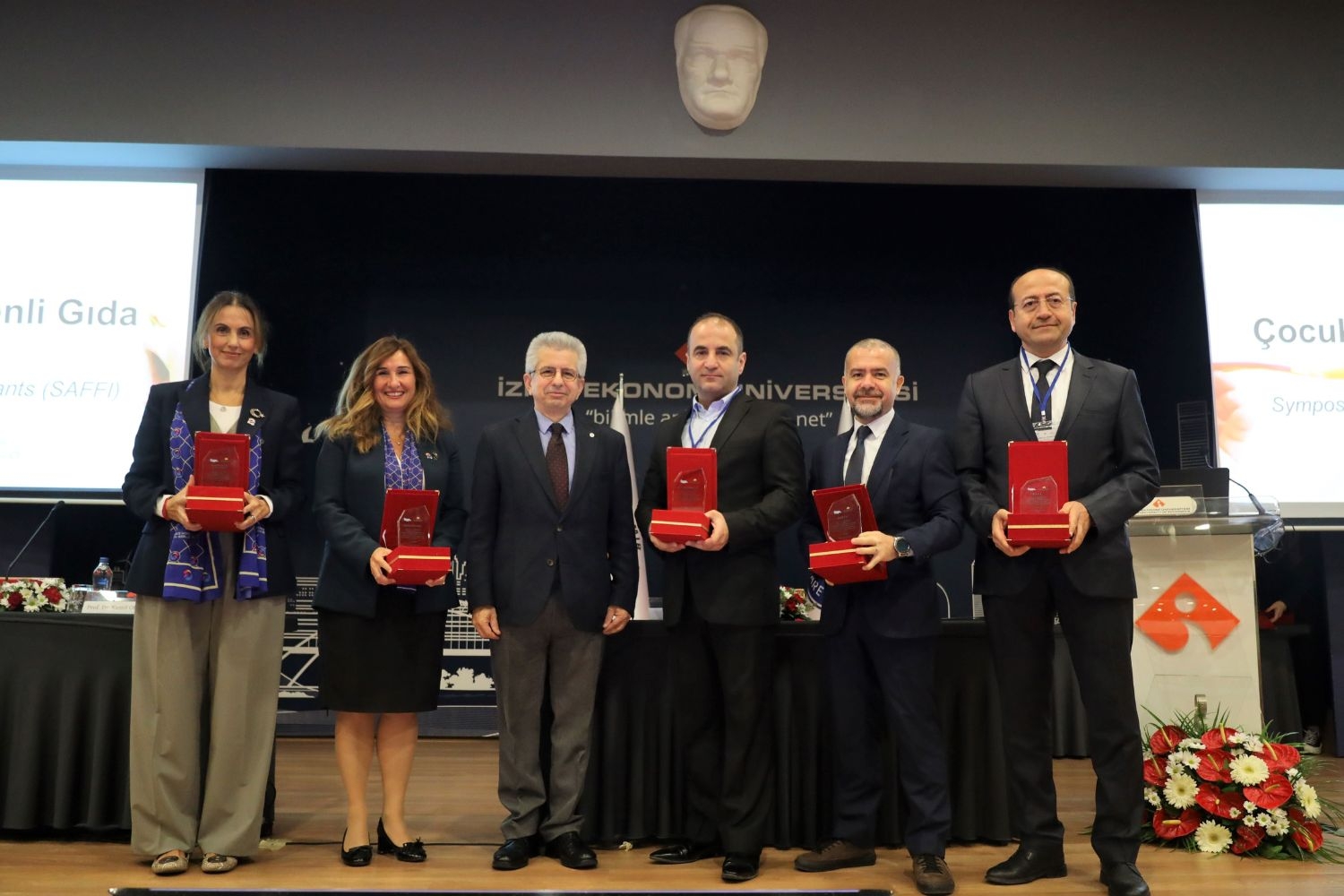
...

...
VOCATIONAL SCHOOL OF HEALTH SERVICES
Department of Child Development| Course Name |
Instructional Technologies And Material Design
|
|
Code
|
Semester
|
Theory
(hour/week) |
Application/Lab
(hour/week) |
Local Credits
|
ECTS
|
|
CG 105
|
Fall
|
2
|
2
|
3
|
6
|
| Prerequisites |
None
|
|||||
| Course Language |
Turkish
|
|||||
| Course Type |
Required
|
|||||
| Course Level |
Short Cycle
|
|||||
| Mode of Delivery | - | |||||
| Teaching Methods and Techniques of the Course | Group WorkApplication: Experiment / Laboratory / WorkshopLecture / Presentation | |||||
| National Occupation Classification | - | |||||
| Course Coordinator | ||||||
| Course Lecturer(s) | ||||||
| Assistant(s) | - | |||||
| Course Objectives | The main goal of this course is to develop adequate skills for being able to prepare tools for classroom management, educational toys, puppets, musical instruments, costumes and accessories. |
| Learning Outcomes |
The students who succeeded in this course;
|
| Course Description | Instructional technology and material design courses are designed to teach students about the field of technology and design materials in accordance with their interests and needs. |
| Related Sustainable Development Goals |
|
|
Core Courses |
X
|
| Major Area Courses | ||
| Supportive Courses | ||
| Media and Management Skills Courses | ||
| Transferable Skill Courses |
| Week | Subjects | Related Preparation |
| 1 | Introduction, basic concepts related to instructional technology | Teaching Techniques and Material Development for Preschool Education Part 1 |
| 2 | Teaching environments and material design | Instructional Technologies and Material Design Book pages: 37-53 |
| 3 | Tools and equipment used in teaching and their effective use | Teaching Techniques and Material Development for Preschool Education Part 3 |
| 4 | Contributions of educational materials to early childhood development (physical, mental, language, social, emotional) | Educational Equipment Development Book pages: 43-53 |
| 5 | Material development process and principles in early childhood education | Teaching Techniques and Material Development for Preschool Education Chapter 5 |
| 6 | Digital Media and Technology in Early Childhood | Digital Technology and Learning Book, Children's Media and Social Media Book |
| 7 | Artificial Intelligence in Early Childhood | Artificial Intelligence Fun Events and Brilliant AI Books |
| 8 | Midterm Exam | - |
| 9 | Designing materials suitable for the given comprehension and development area for early childhood | Making the proper preparation about the material approved by the instructor. |
| 10 | Designing materials suitable for the given comprehension and development area for early childhood | Presenting the designed educational material in a sketched or written format. |
| 11 | Designing materials suitable for the given comprehension and development area for early childhood | Making the proper preparation about the material approved by the instructor. |
| 12 | Material design appropriate to the given topic for early childhood | Making the proper preparation about the material approved by the instructor. |
| 13 | Material design appropriate to the given topic for early childhood | Presenting the designed educational material in a sketched or written format. |
| 14 | Material design appropriate to the given topic for early childhood | Making the proper preparation about the material approved by the instructor. |
| 15 | Examination of the course | |
| 16 | Final Exam |
| Course Notes/Textbooks | Ültay, E., & Ültay, N. (2016). Teaching techniques and material development for preschool education. Pegem Citation Index, 2016(1), 01-233. ISBN: 9786053184539 Sarıbaş, M. (2007) Instructional Technologies and Material Design, Pegem Academy, Ankara, ISBN: 9789944919722 Educational Tools and Materials Development, Edited by Miray ÖZÖZDEN DANACI (2015) Educational Book ISBN: 9786059254076 Digital Technology and Learning, Edited by Rahime Filiz Ağmaz and Funda Ergüleç, PEGEM PUBLISHING, ISBN: 9786257228671 |
| Suggested Readings/Materials | DIGITAL MEDIA in Preschool Education, Editors: Dr. Ebru BOĞA BARAN, Dr. Suna VURAL, Educational Book, ISBN: 978-625-5974-77-8 CHILDREN, MEDIA, and SOCIAL MEDIA, Editors: Assoc. Prof. Dr. Sait YILDIRIM and Assoc. Prof. Dr. Aysun DOĞUTAŞ, Educational Book, ISBN: 9786257348553 A Bright Artificial Intelligence Guide, Yavuz Samur, Eğlenceli Bilgi Publications, ISBN: 978-625-7844-95-6 |
| Semester Activities | Number | Weigthing |
| Participation |
1
|
5
|
| Laboratory / Application |
1
|
5
|
| Field Work | ||
| Quizzes / Studio Critiques | ||
| Portfolio | ||
| Homework / Assignments |
1
|
10
|
| Presentation / Jury | ||
| Project |
1
|
20
|
| Seminar / Workshop | ||
| Oral Exams | ||
| Midterm |
1
|
20
|
| Final Exam |
1
|
40
|
| Total |
| Weighting of Semester Activities on the Final Grade |
5
|
60
|
| Weighting of End-of-Semester Activities on the Final Grade |
1
|
40
|
| Total |
| Semester Activities | Number | Duration (Hours) | Workload |
|---|---|---|---|
| Theoretical Course Hours (Including exam week: 16 x total hours) |
16
|
2
|
32
|
| Laboratory / Application Hours (Including exam week: '.16.' x total hours) |
16
|
2
|
32
|
| Study Hours Out of Class |
16
|
2
|
32
|
| Field Work |
0
|
||
| Quizzes / Studio Critiques |
0
|
||
| Portfolio |
0
|
||
| Homework / Assignments |
1
|
10
|
10
|
| Presentation / Jury |
0
|
||
| Project |
2
|
12
|
24
|
| Seminar / Workshop |
0
|
||
| Oral Exam |
0
|
||
| Midterms |
1
|
10
|
10
|
| Final Exam |
1
|
20
|
20
|
| Total |
160
|
|
#
|
Program Competencies/Outcomes |
* Contribution Level
|
|||||
|
1
|
2
|
3
|
4
|
5
|
|||
| 1 |
To have the required contemporary theoretical and practical knowledge in his/her field |
-
|
-
|
X
|
-
|
-
|
|
| 2 |
To use the material and technology related to his/her field, and make their maintenance, use the information and communication technologies at basic level |
-
|
-
|
-
|
-
|
X
|
|
| 3 |
To have the competency to recognize the problems in his/her field, analyze them, develop evidence-based solutions and have the ability to share their suggestions with others |
-
|
X
|
-
|
-
|
-
|
|
| 4 |
To be aware of legal responsibilities, conduct basic studies in her/his field independently |
-
|
-
|
-
|
-
|
-
|
|
| 5 |
To communicate with patients, relatives and colleagues properly, comprehensively, honestly and explicitly, transfer his/her thoughts and knowledge through written and oral communication |
-
|
-
|
-
|
-
|
-
|
|
| 6 |
To take responsibility as an active team member during the practices in his/her field |
-
|
-
|
-
|
-
|
-
|
|
| 7 |
To commentate and evaluate the scientific information with a critical approach by the help of knowledge gained in his/her field |
-
|
-
|
-
|
X
|
-
|
|
| 8 |
To comprehend the importance of lifelong learning, to determine and meet her/his learning needs, to develop herself/himself by monitoring the development in science and technology |
-
|
-
|
-
|
-
|
-
|
|
| 9 |
To act by considering the universal ethical values, social and cultural characteristics |
-
|
-
|
-
|
-
|
-
|
|
| 10 |
To know the concepts of occupational safety, patient safety, environmental protection and quality, and fulfill the requirements |
-
|
-
|
-
|
-
|
-
|
|
| 11 |
To be able to follow information in his field and communicate with colleagues in English at least a level of European Language Portfolio A2 General Level |
-
|
-
|
-
|
-
|
-
|
|
| 12 |
To have the skills of improving the development and learning of children with special needs |
-
|
X
|
-
|
-
|
-
|
|
| 13 |
To plan and carry out activities for development of people under their responsibility |
-
|
-
|
-
|
-
|
-
|
|
*1 Lowest, 2 Low, 3 Average, 4 High, 5 Highest

...

...

As Izmir University of Economics transforms into a world-class university, it also raises successful young people with global competence.
More..Izmir University of Economics produces qualified knowledge and competent technologies.
More..Izmir University of Economics sees producing social benefit as its reason for existence.
More..